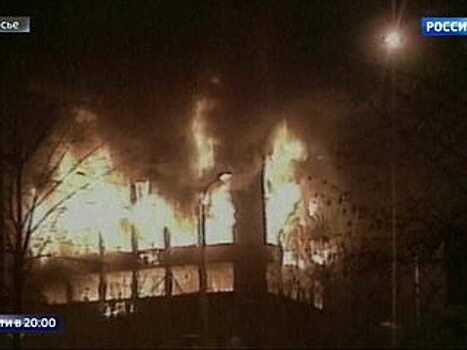Barrage on International Law: How Yugoslavia was Destroyed
During Russian-Serbian talks, Aleksandar Vucic emphasized Belgrade's firm intention to remain neutral. Before the trip to Moscow, he expressed himself even more specifically. Serbia will never be a member of NATO, a bloc that started direct aggression against it 18 years ago. It is during these days, that the country remembers the anniversary of Yugoslavia's bombing, which, according to various sources, claimed up to 4,000 lives. Alexander Minakov, who witnessed this bombing, will tell about things that the Serbs haven’t forgotten to this day. Zhanka Stojanovic, like all citizens of Belgrade, didn’t believe that the city would be bombed until the last moment. And, of course, she couldn’t even imagine, that she would lose her only son in this war. Nebojsha worked at the Belgrade television center. When cruise missiles struck the building, he was in the editing room. They were preparing another report for broadcast. Every night, when they were on duty, we were on duty with them, but at home. That night, I was watching the television of Serbia. I talked to them over the phone two or three times, and when the screen blacked out, I understood everything. 16 dead journalists, dozens wounded. By the time the television center was bombed, NATO aircraft had been bombing the country for a month. Yugoslavian air defense forces were able to resist only during the first days of aggression. However, they will always be remembered for the fact, that they shot down the newest American stealth aircraft F-117 Nighthawk. Colonel Zoltan Dani, the commander of the legendary battery, remembers all the details, even 18 years later. The plane was detected at a distance of less than 30 kilometers, and we allowed it to enter the lethal envelope. When the target was on the cross, I ordered the launch. By early April, Yugoslavia's air defense forces were suppressed, and NATO planes began to destroy the country with impunity. In total 2500 civilians became victims of the bombardments. The actions of NATO and their allies were more like an indicative punitive action. Yugoslavia was too independent and economically strong. It was a multinational, but a single and very large state, with a strong army, and with great sympathy for Russia. In high ranks, a decision was made that Yugoslavia shouldn’t exist in its former state. This is how the course to destroy Yugoslavia was taken. Even such agenda-driven organizations as Human Rights Watch and Amnesty International were forced to admit that many NATO actions in Yugoslavia fell under the category of war crimes. However, no one has been held responsible for this to this day. The current international system, is basically a system built by the West to ensure its own interests. I believe that in these conditions, Serbia doesn’t have such an opportunity. If the international situation changes in the future, it might happen, why not. Emir Kusturica, the world-famous Serbian director, has already arrested the main culprits of the Yugoslav tragedy. In his town of Drvengrad, he built a symbolic prison, in which he put George W. Bush and former NATO Secretary General, Javier Solana. The bombing of Serbia was an assassination attempt on international law of planetary proportions, of a planetary scale, and the Serbian precedent opened the way for the further NATO aggression in Iraq, Libya, and Syria. Are European Union citizens able to realize, that many of their current problems, above all, the migration crisis, originate in March 1999, when the US and its European allies started a war against a small country in the center of Europe without a UN mandate?
